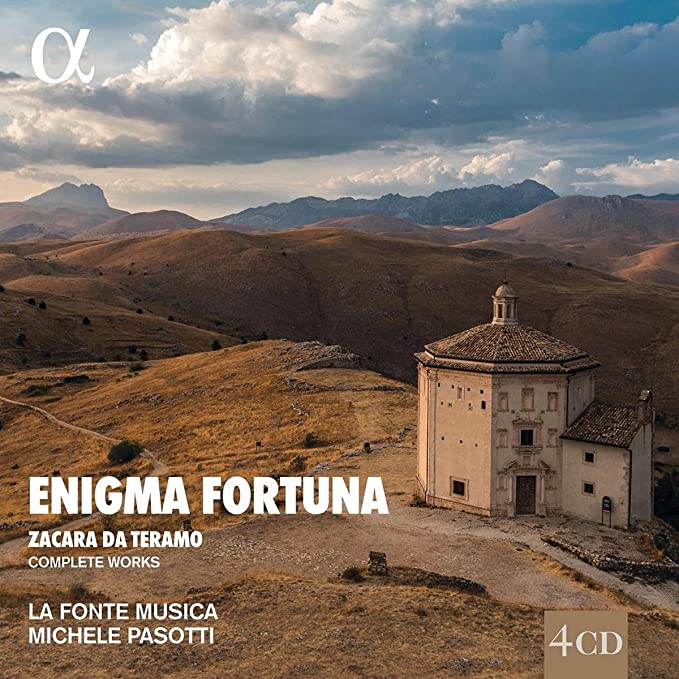Zacara da Teramo : Complete Works
La Fonte Musica, Michele Pasotti
237:00 (4 CDs in a card box)
Alpha Classics Alpha 640
Click HERE to buy this on amazon.co.uk
[These sponsored links help the site remain alive and FREE!]
Zacara of Teramo, AKA Antonio di Berardo di Andrea, is a kenspeckle figure who has only recently coalesced out of a number of shadowy figures of the period as a result of scholarly research into the early Italian Renaissance. (The ‘new’ Zacara now incorporates all of the first three entries under Z in J and E Roche’s excellent 1981 ‘Dictionary of Early Music’!) Active in the Brescia region, Zacara (‘Tiny’) probably acquired his nickname due to his restricted growth, while further deformities meant he had only ten digits altogether on his hands and feet, a fact unshrinkingly demonstrated in a surviving portrait. Now that a larger body of music by this one composer has been identified, he has emerged as an extremely important link between the ars subtilior of the 13th century and the music of the early Renaissance. This comprehensive 4-CD account of his complete sacred and secular oeuvre, including many premiere recordings, is a revelation, both sacred and secular works receiving very fine performances indeed on convincing blends of voices and instruments. It is perhaps easier to identify a specific individual style once a body of work has been confidently ascribed to one composer, but it is hard to see why it wasn’t clear all along that this was the work of a single distinctive and highly talented musical mind. There is also satisfaction for us nowadays in the discovery that a man coping with considerable physical challenges could be so successful in his chosen career and lead such a long and fruitful life in the 14th and 15th centuries. The sacred music (recorded on the first two CDs) in particular is among the finest I know from the period, and these superb idiomatic accounts by La Fonte Musica go a long way to re-establishing Zacara’s seminal role in the development of sacred Italian music. This is not to diminish the attractiveness of the two CDs of Zacara’s secular music, which open with his splendid Cacciando per gustar with its vivid evocation of a busy marketplace.
D. James Ross
